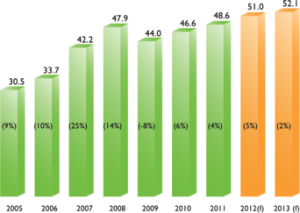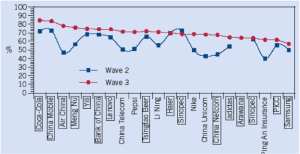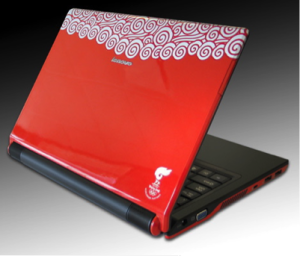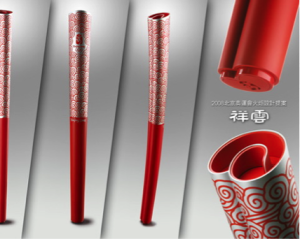Do you think that Olympic sponsorships pay off for companies such as Lenovo?
There is a interesting case that new brand without any endorsement by power brand joined sponsorship during Olympic games. In 2005, China’s Lenovo Group acquired IBM’s personal computer business for $1.25 billion (Keegan & Green, 2012). Lenovo was seeking to be more noticed in a competitive global market, being an Olympic sponsor would help them achieve that.
In 2013, global sponsorship expenditure worldwide rose 2% to $52.1 billion. Sponsorship activities accounted for 6% of global marketing spending in 2012; mass marketing (such as advertising) accounted for 57% and direct marketing 31% (Admap, 2013). The trend today in sports sponsorship represents significant marketing with companies spending a great deal of money on it.
Figure 1. Trends in global sponsorship spend, December, 2012, Objectives in sponsorship in evaluation, 2012, US sponsorship by category, 2013
Note. Adapted from Admap, Adstats: Global sponsorship, 2013.
Companies spend more money for global brand sponsorship to increase their brand loyalty. As can be seen, sports sponsorships recently accounted for 69% among various sponsorships. From an integrated marketing communication (IMC) perspective, sport marketing, including sponsorship, has become an imperative for global marketers.
In the case of Lenovo, it was ranked #4 among 29 sponsors: followed by China Mobile, Coca-Cola, and Air China according to Beijing 2008 Olympic game sponsorship performance research (Wang, 2008). As can be seen in Figure 2, Lenovo’s recognition as an Olympic sponsor demonstrates higher index than non-sponsors.
Figure 2. Recognition as Olympic sponsor: reports compared
Note. Sponsoring brands highlighted. Adapted from Admap, 2008.
Global Olympic sponsorship marketing can give a company credibility among potential customers by showing that it can spend a great deal of money with global dominant brands such as Samsung (Olympic), Coca-Cola (World Cup), and other big brands. Customers, therefore, tend to regard sponsors as global top-tier brands. For example, Avaya, information technology (IT) company, sponsored the 2002 World Cup once. Consequently, they quickly grew into a dominant brand in the global IT industry.
For a sport sponsorship to succeed, it needs diverse and effective sports marketing programs: integrated marketing communications (IMC) including advertising campaign, public relations (PR), promotional events, and other effective activities as well as brand exposure at stadium venue. Also, IMC must have one core theme in consideration of target and positioning. During the Vancouver Olympic Winter Games, for instance, Procter and Gamble (P&G) conducted a “moms’” campaign, trying to deliver emotional message because P&G is a company that manufactures consumer goods, especially well suited for moms. As a result, P&G achieved successful result that increased 10-point favorability and $100 million in extra sales in the US (Letizia, 2013).
As companies deserve brand power and credibility, as in the Lenovo case (eliminating power brand IBM), they are better off getting involved in large-scale events such as the Olympics and World Cup. This increases the odds of their establishing brand awareness and preference among global customers. Also, creative and aggressive marketing actions help them boost their brands and products in the short term. Lenovo offered laptops to members of the press to show off the stylish products through the media as well the as selling limited editions to customers.
Figure 3. Lenovo limited edition design for 2008 Beijing Olympic
To win more market share, companies such as Lenovo should manage their brands, enhance its credentials, and boost brand awareness among customers (Wall Street Journal, 2012).
Questions
1. What treats does Lenovo have without IBM logo?
2. Do B2B brands also need to join the sponsorship for Olympic or World Cup game?
References
Admap. (2013, April). Adstats: Global sponsorship, 48-49. Retrieved from http://www.warc.com.libproxy.usc.edu/Content/ContentViewer.aspx?ID=0d21a6bc-65b3-4625-8976-b04e506c4772&q=global+sponsorship&MasterContentRef=0d21a6bc-65b3-4625-8976-b04e506c4772
Keegan, W. J. & Green, M. C. (2012). Global marketing. (7th ed.). New Jersey: Parson Education Inc.
Letizia, J. (2013). Sports sponsorship. ARF–Knowledge at Hand. February 2013. Retrieved from http://www.warc.com.libproxy.usc.edu/Content/ContentViewer.aspx?MasterContentRef=0fd0b679-5d8d-4673-a225-b1f2843696fb&q=sports+sponsorship
Wang. (2008). Beijing Olympic games sponsorship performance. Admap, China supplement February 2008, 29-32.
Warc. (2012, July 10). Lenovo seeks to build its brand. Wall Street Journal. Retrieved from http://www.warc.com/Mobile/News.aspx?ID=30086








4 Responses to Do you think that Olympic sponsorships pay off for companies such as Lenovo?